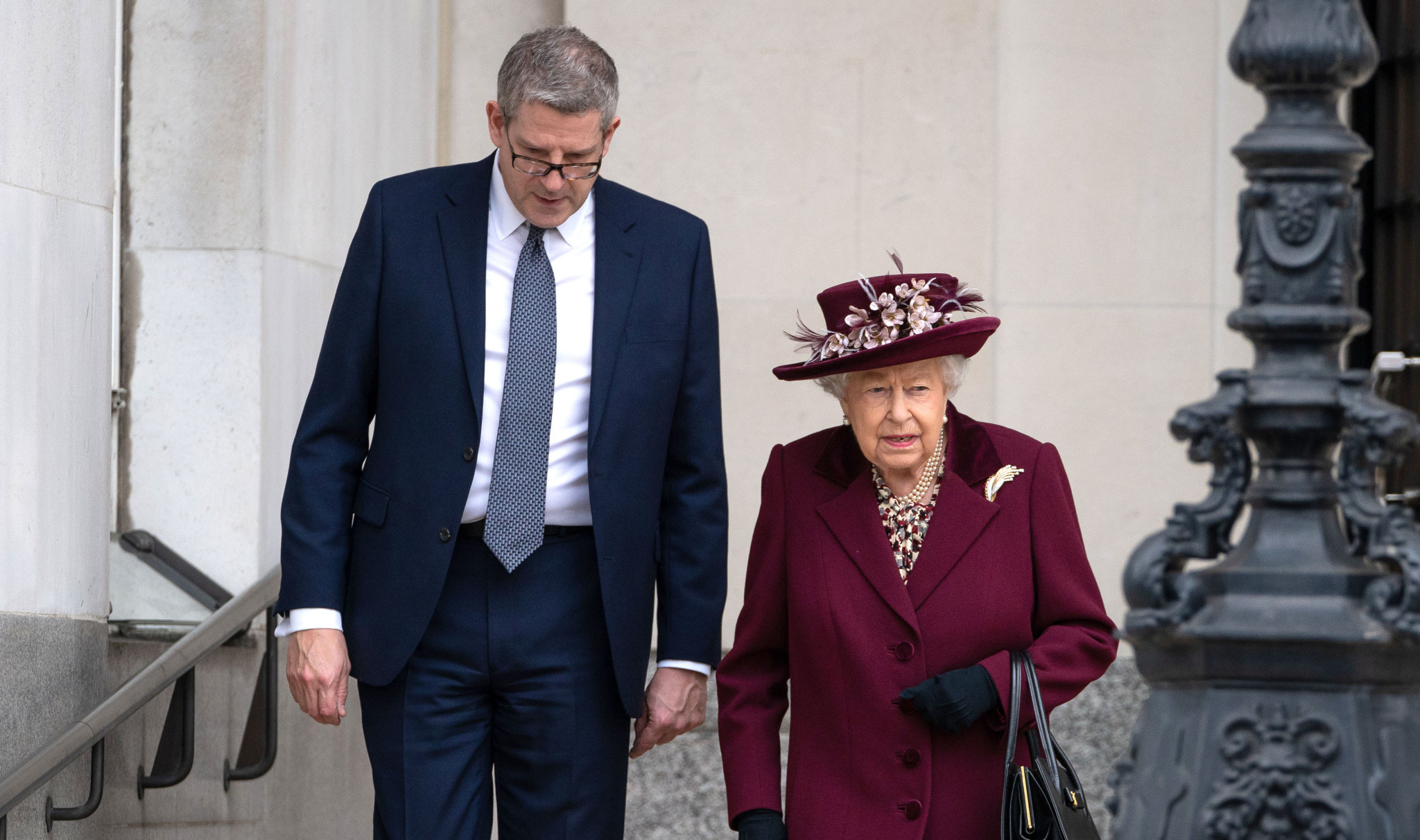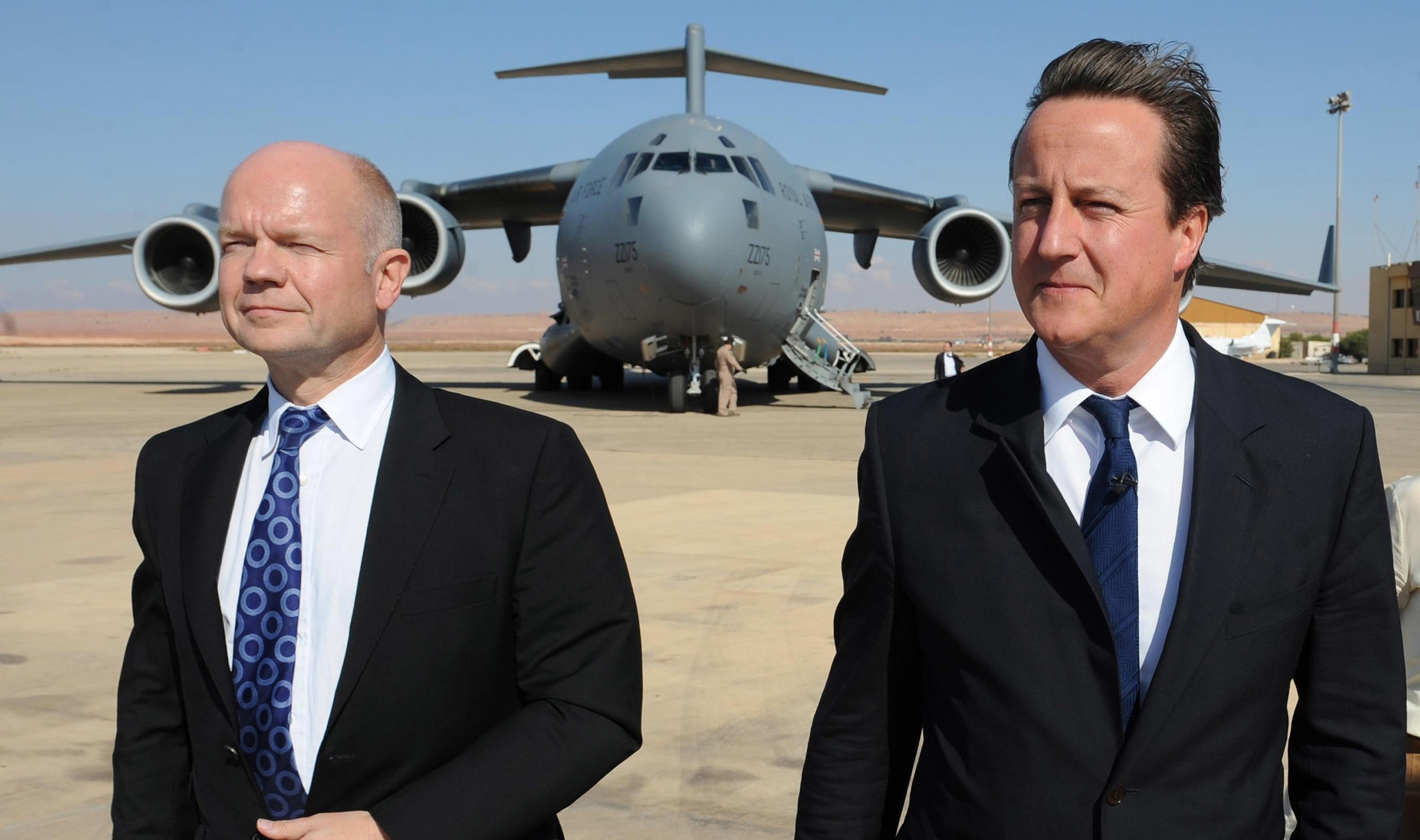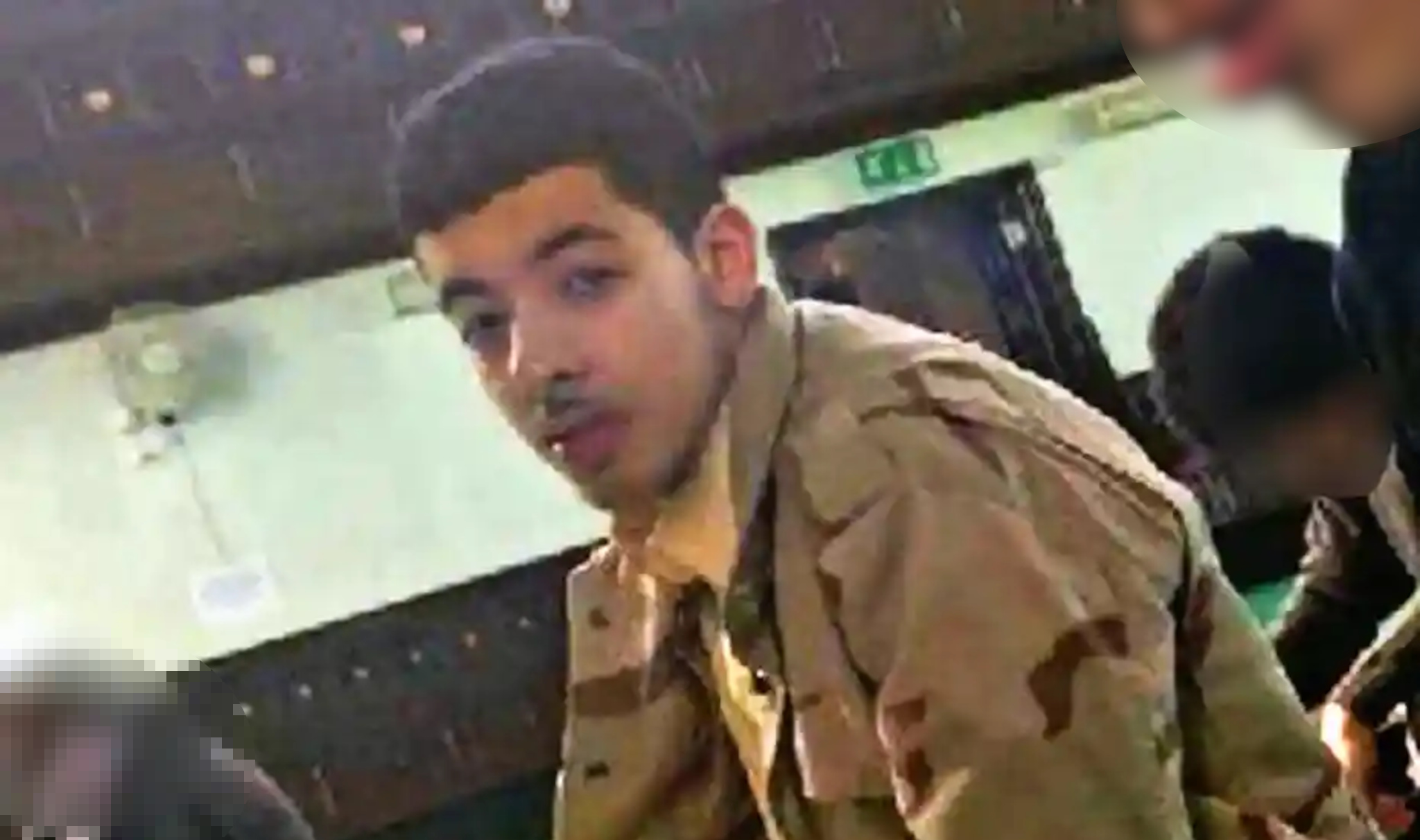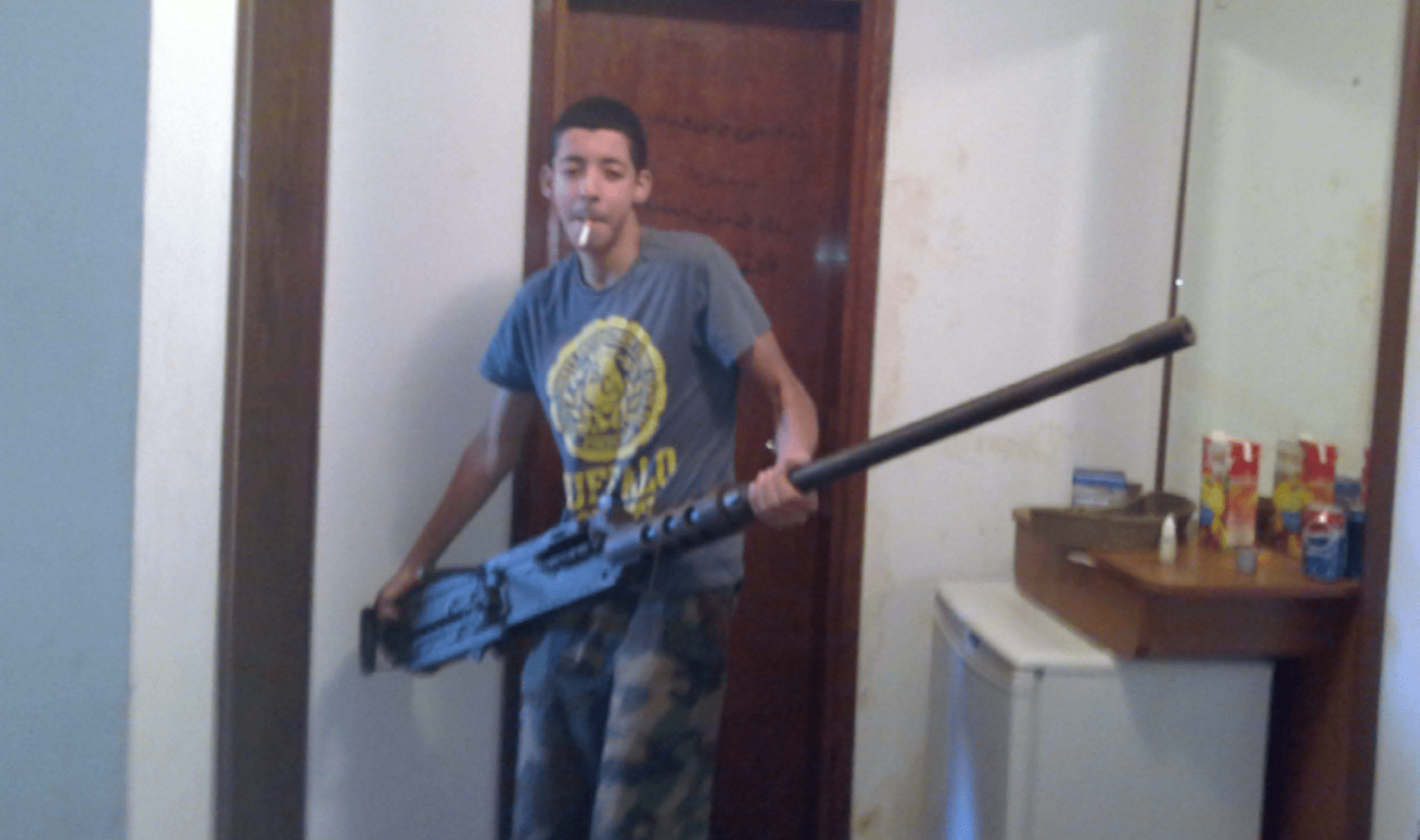Part 4 of Declassified UK’s investigation into the Manchester Bombing
The Manchester Arena inquiry, which was meant to investigate the radicalisation of the bomber Salman Abedi, is unlikely to get to the truth about his connections to the UK military and security services.
The inquiry began taking evidence in September 2020 and closed its hearings this March after 196 days. It was meant to explore the “knowledge of the Security Service, the police and others about Salman Abedi”.
This involved addressing “what intelligence and other relevant information on Salman Abedi…. was available to the Security Service, the police and others prior to the attack”.
The lawyers for the victims’ families put what questions they could to the security services during the inquiry. But witnesses for MI5 and the police repeatedly refused to answer key questions and escaped full accountability.
MI5 was allowed to give nearly all its evidence in secret, closed sessions.
Only certain lines of questioning were allowed by the chair, Sir John Saunders, to be pursued during the inquiry and its terms of reference did not explicitly say the policies of UK government agencies would be investigated.
This is worrying because, as Declassified has shown, Salman Abedi and some of his closest family members were beneficiaries of UK military support for Islamist militias in the war in Libya in 2011. Abedi is likely to have been radicalised by his experience during that conflict.
In the years leading up to the 2017 bombing, Abedi was allowed to travel to Libya unhindered, and was even rescued from the country by the Royal Navy in 2014.
His father Ramadan, who likely played a key role in his radicalisation, has a long history of association with an extremist force, the Libyan Islamic Fighting Group (LIFG), that was previously covertly supported by MI6.
Saunders will report later this year. But the families of the 22 innocent victims of the bombing are unlikely to hear the full story of the Abedis.
The process has been flawed in four main ways.
1. Roots of radicalisation not investigated
The inquiry made little attempt to probe UK government policies during its war in Libya in 2011. Salman Abedi was taken to that conflict at age 16 by his father, and may have gained military experience and training there, as the inquiry heard.
Evidence emerged that the Abedis had joined the militia forces the February 17 Martyrs Brigade and the Tripoli Brigade in the fight against the regime of Muammar Gaddafi in 2011. Yet the inquiry did not probe how the British military and security services had supported those groups at the time, even though some information was available from open source material.
The government told parliament in March 2018 it “likely” had contacts with the Martyrs Brigade in the 2011 war.
“The inquiry did not probe how the British military and security services had supported those groups.”
One of the key witnesses, Abdalraouf Abdallah, a friend of the Abedis who was in contact with Salman prior to the bombing, said at the inquiry that, as a member of the Tripoli Brigade, he was trained by Nato during the war. There was little probing as to whether the Abedis might have also received training.
A related issue concerns the extent to which MI5 and MI6 encouraged radicals such as the Abedis, and other British-Libyans based in Manchester, to fight in that war.
Yet no serious efforts were made by Saunders to probe this issue. This failure is illustrated in an exchange on 22 November 2021 between Saunders and the chief investigating officer for Greater Manchester Police (GMP), Simon Barraclough.
- SAUNDERS: One of the things he [ARA] said is that the people who went from this country to fight against Gaddafi were being encouraged to do so by the British Government. Did your investigations support that or not? Or would you prefer not to answer?
- BARRACLOUGH: I couldn’t say. I don’t know.
- SAUNDERS: That’s fair enough.
- BARRACLOUGH: I find that highly unlikely. Certainly from my −−
- SAUNDERS: Who knows what went on in Libya?
- BARRACLOUGH: Who knows?
- SAUNDERS: Thank you
2. MI5 revealed almost nothing
An MI5 witness, known only as ‘Witness J’, gave evidence in public to the inquiry over two days in October 2021. They revealed very little that was not already in the public domain, often refusing to answer questions that could have thrown more light on the Abedis.
MI5 said little that the Intelligence and Security Committee hadn’t already stated in its 2018 report to parliament.
Typical was when Witness J was asked by one of the lawyers for the victims’ families if Ramadan Abedi was or was not connected with the LIFG. Witness J replied: “I’m afraid I’m not able to get into that in open”.
Neither would MI5 answer questions about Salman Abedi’s rescue by the Royal Navy in 2014, surely an extraordinary act three years before he undertook his atrocity. “I can’t confirm in open what we knew about that at the time”, Witness J said.
MI5’s obfuscation was so clear that John Cooper, one of the lawyers acting for the families, asked Witness J: “Can I suggest to you, and the families have this concern, you are using national security as an excuse not to answer legitimate questions.”
“No”, replied Witness J, “From my perspective, I’m sitting here giving evidence, trying as hard as I can to share in open what we as an organisation did in the run−up to 2017”.
Cooper added: “We question the transparency and genuine motivations of MI5 and the security services, not only to assist this inquiry but to place matters properly suitable for open hearing in the open hearing domain in plain sight to be examined by the families.”
He suggested MI5 was “virtue signalling” in the inquiry and that it wanted to “close down open analysis”. The result was that “the families feel effectively deprived of information”.
MI5 also refused to say what information it had about some of Salman Abedi’s close friends who are suspected of either helping to radicalise him or may have been involved in the bombing.
Indeed, the security service has clung to the assertion that only the two brothers, Salman and Hashem Abedi (the latter who was jailed for 55 years for his role in the bombing), were involved in the plot.
“You are using national security as an excuse not to answer legitimate questions.”
This is strongly disputed by the lawyers for the families. One of them, Pete Weatherby, writes that this is “inconsistent with the evidence” concerning “a plot which had many players and overt acts”:
He adds: “There is an advantage to the UKIC [UK intelligence community] in presenting this attack as limited to the brothers as lone actors, because if there was nothing to see there was nothing to miss”.
Neither does MI5’s claim sit well with the police having outstanding suspects. The organisation has a “preoccupation with institutional defence rather than a search for improvement”, Weatherby argues.
The Greater Manchester Police (GMP) were often little better. They stated, for example, that after Salman and Hashem Abedi were rescued by the navy in 2014, they agreed to be “debriefed”.
Yet when Pete Weatherby questioned the GMP witness Dominic Scally whether they were in fact debriefed, he said: “I’m afraid that’s one of the areas I can neither confirm or deny what we may hold about that.”
When Kenny MacAskill MP recently asked the Ministry of Defence if the Abedi brothers were debriefed, minister James Heappey told parliament that, “having completed a search of relevant records, we have found no information pertaining to the question”.
Scally was also questioned about Ramadan Abedi’s links to the LIFG, but replied: “Our knowledge of Ramadan is not something I would be able to discuss here.”
3. The secret sessions highlight unaccountable security services
The security services failed to stop the murder of 22 people after Salman Abedi had been on their radar for several years and was part of a family with demonstrable extremist connections, friends and mindsets.
In this light, it was perhaps shocking that those agencies were not forced to give evidence in public. But Sir John Saunders gave in to their demand to hold mainly secret, closed sessions.
He supported the state’s argument that giving open evidence “would assist terrorists in carrying out the sort of atrocities committed in Manchester and would make it less likely that the security service and Counter−terrorism Policing would be able to prevent them.”
The closed sessions were held over 10 days in November 2021. Lawyers for the families were not allowed to attend. But lawyers for the GMP and home secretary were allowed, alongside five members of the counsel to the inquiry team.
“These secret sessions have been an immense source of frustration to those we represent”.
Evidence in these closed sessions was given by five witnesses from MI5, seven GMP witnesses from Counter-Terrorism Policing (CTP), and ‘Expert Witness Z’, who is also believed to be a long standing MI5 officer. Statements were given by the GMP and two other CTP witnesses.
The GMP claims that “the full picture of what was known to MI5 and CTP about Salman Abedi, and other members of the Abedi family, has been explored in closed”.
But there is no way of knowing whether this is true, and the public is none the wiser. John Cooper said: “These secret sessions have been an immense source of frustration to those we represent”.
The public was allowed to hear “the gist” of what the security services said in those closed sessions, and a 15 page document was presented to the inquiry in February 2022. But this revealed very little beyond what MI5 had also (minimally) said in open sessions.
The inquiry went into censorship mode on reporting on these closed sessions. Its counsel, Paul Greaney, referred to “what can and cannot be reported” and said he “will ensure that the YouTube feed reflects what it is permissible to broadcast”.
4. Key intelligence agencies escaped questioning
Only MI5 and the Greater Manchester Police were called to give evidence, either in the closed or open sessions. MI6 and GCHQ escaped any questioning.
Yet before the inquiry, there were various media reports that Manchester radicals, including the Abedis, had fought in Libya in 2011 with the “encouragement of MI6”. MI6 might also surely have important information about what the Abedis were doing in Libya in 2014 and after, when they also visited the country and had connections to extremist groups there.
The UK’s largest intelligence agency, GCHQ, eavesdrops on communications around the world and presumably has information on extremist groups in Libya, and the UK role there from 2011 onwards, since the agency plays a key role in UK wars.
But neither it, nor Defence Intelligence, were required to inform the public what it knew.
Pete Weatherby wrote: “Given the background and context evidence relating to Libya and elsewhere, we are not clear as to why there was no evidence heard from MI6 and GCHQ or other parts of the UKIC [UK intelligence community].”
Read Part 1, Part 2 and Part 3 of Declassified’s investigation into the Manchester bombing.





